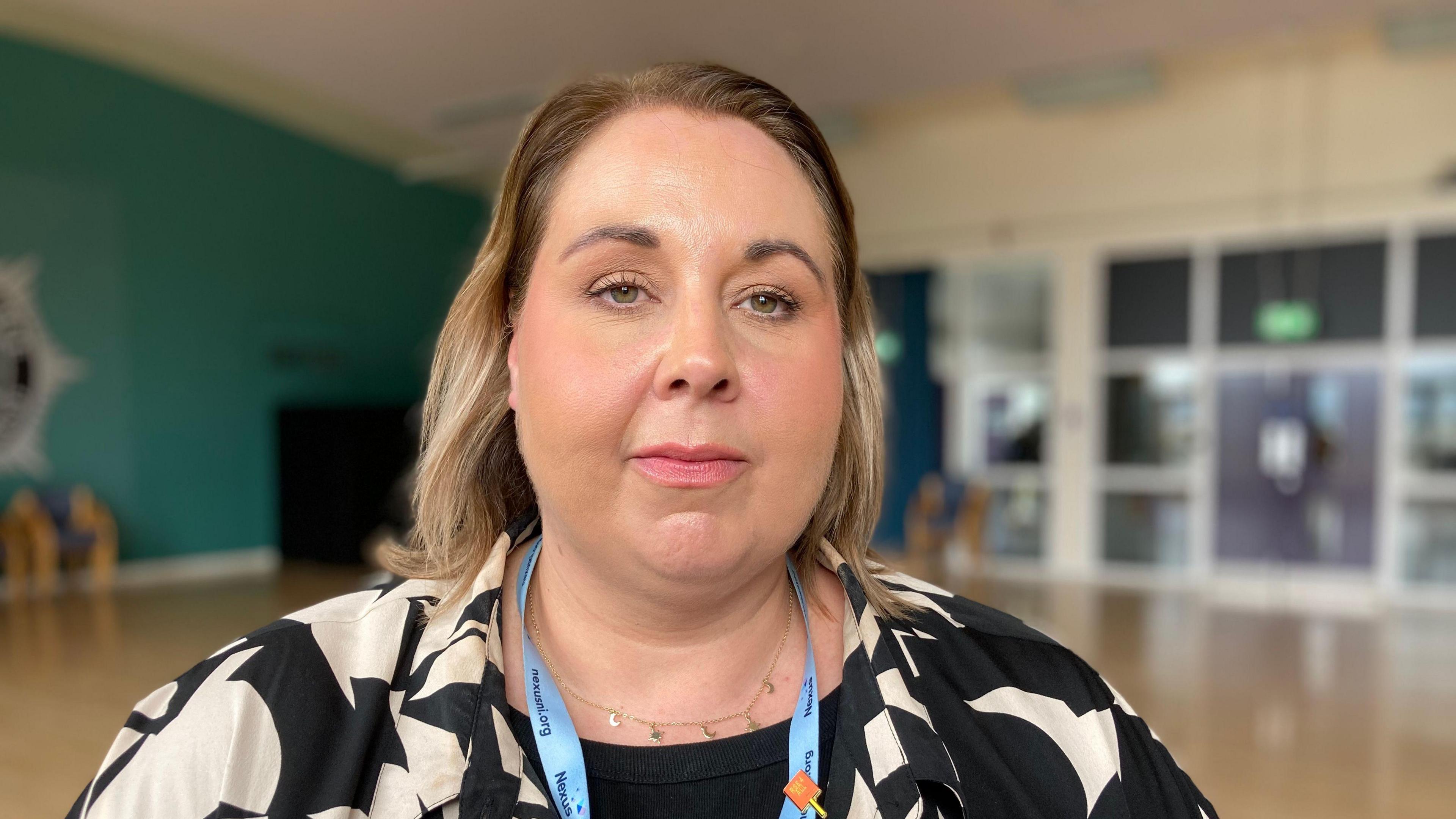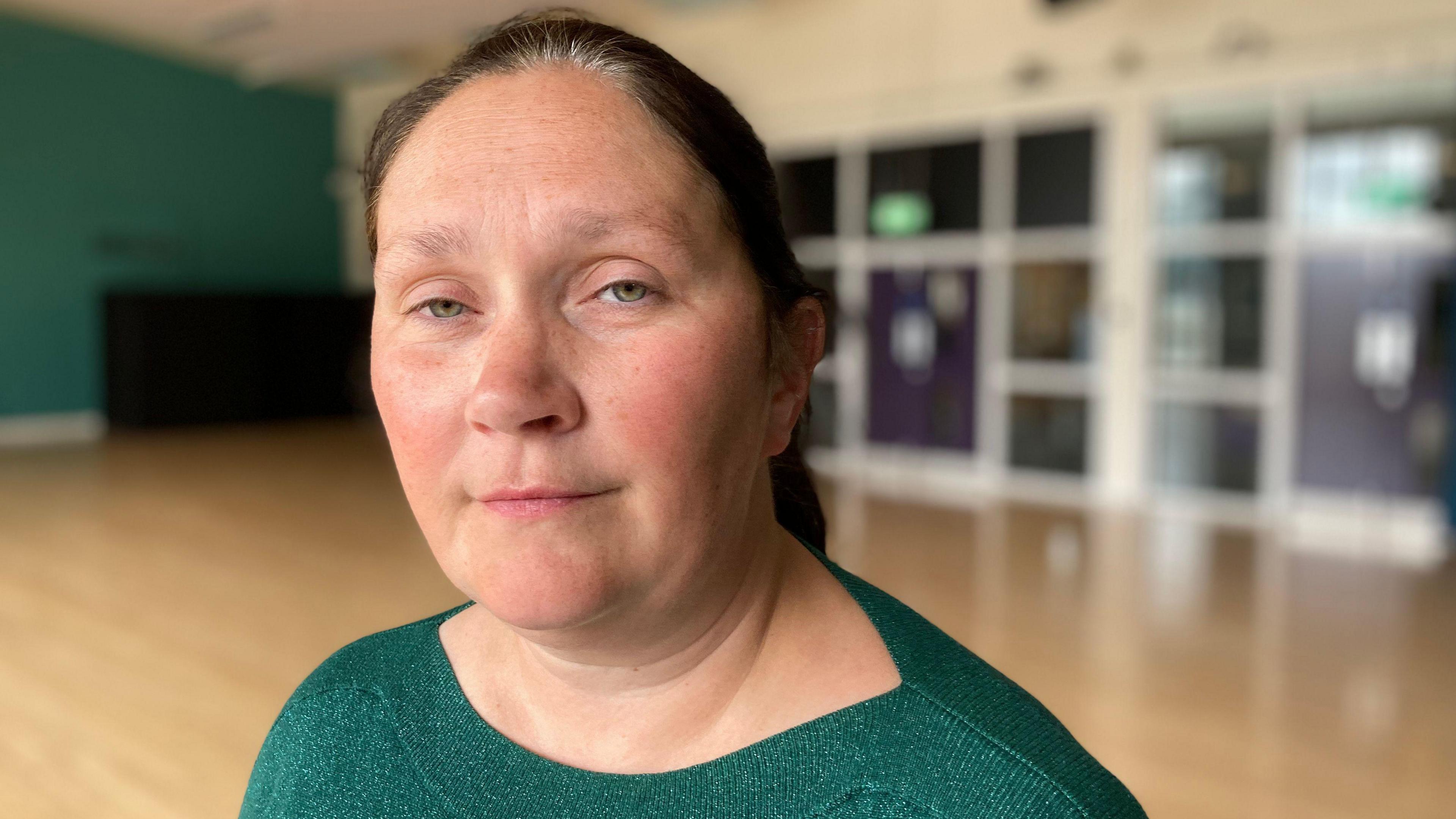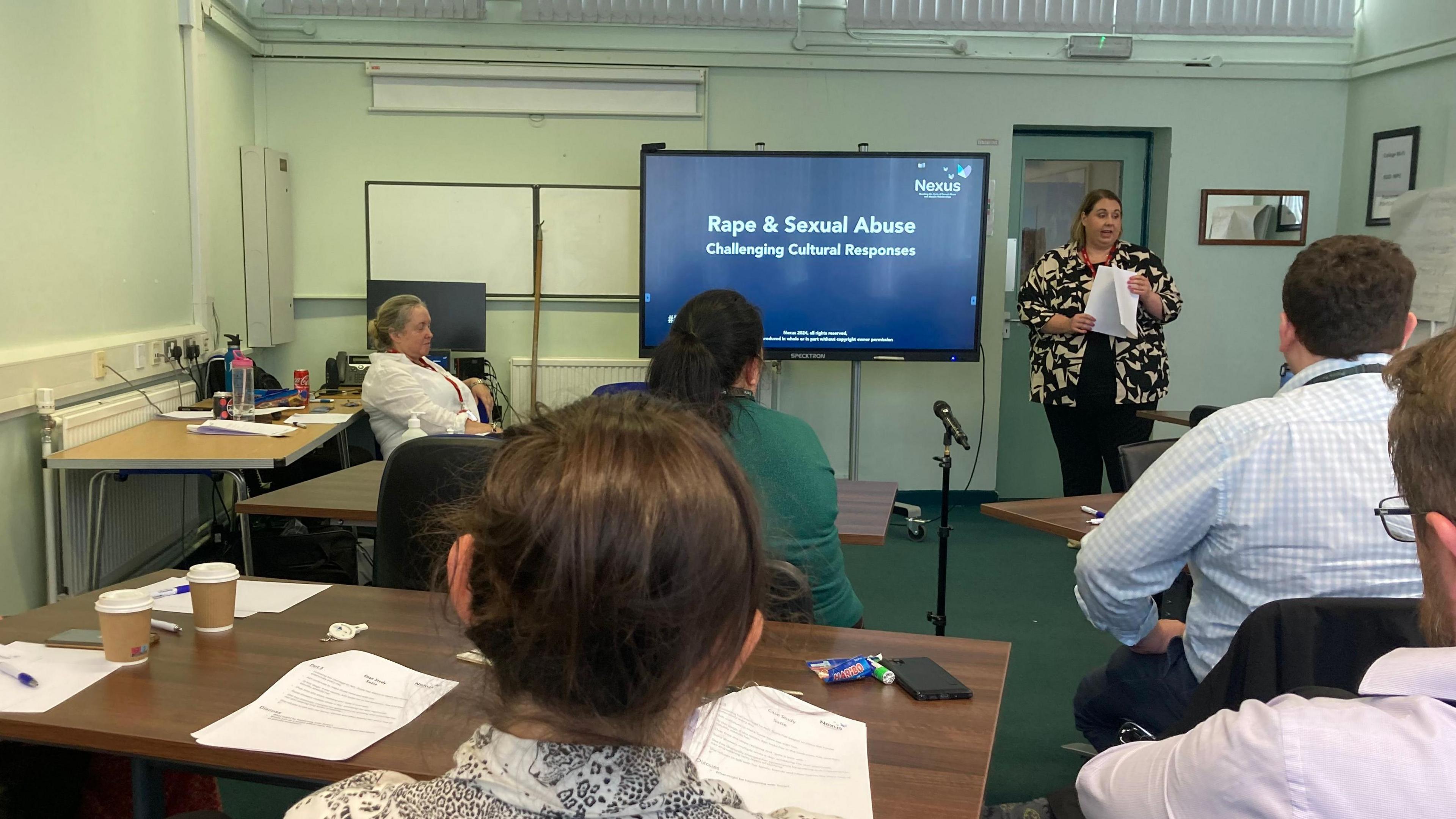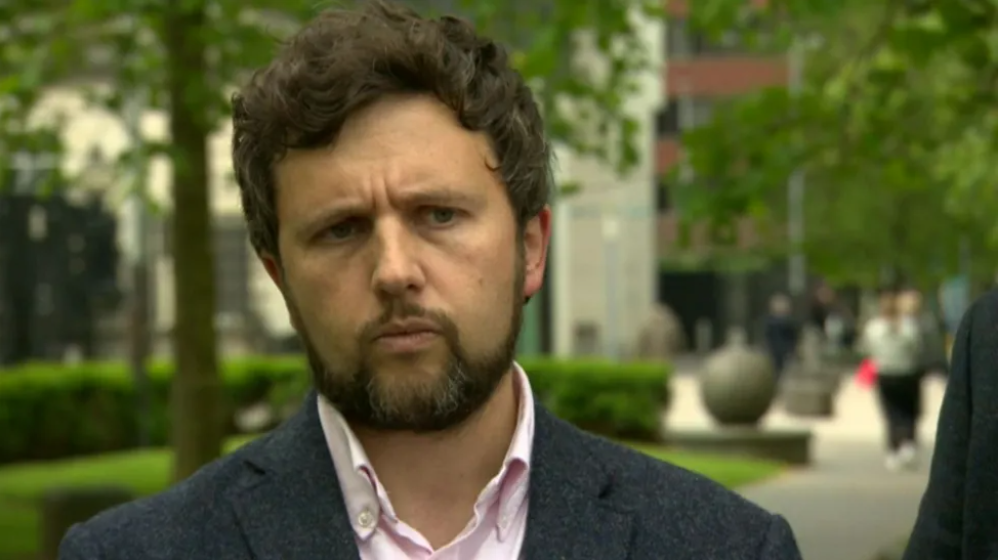Police trained up on response to rape and sex crimes

Jan Winton, from Nexus, developed and led the police programme
- Published
The Police Service of Northern Ireland has provided training to more than 500 frontline officers in an effort to improve its response to victims of rape and sexual crimes.
Over the last 12 months, Nexus, a sexual abuse and abusive relationships charity, has provided in-person training to officers.
The latest figures show there were 4,022 sexual violence and abuse reports made to the police in the previous 12 months.
In April 2018, the Gillen Review was commissioned by the Department of Justice to improve criminal justice outcomes and the experiences of victims.
It set out 253 recommendations.
A key recommendation for all criminal justice partners was to raise awareness and challenge any internal unconscious bias that may exist.
Unconscious bias is a term that describes the associations we hold, outside of our conscious awareness and control.
They are influenced by our background, personal experiences, societal stereotypes and cultural context.

Det Ch Supt Lindsay Fisher said there had been a change of focus within the force
Det Ch Supt Lindsay Fisher said the training package would go a long way to ensure "our language and behaviours towards vulnerable victims are more consistently appropriate and that they feel supported".
There had been a change in focus within the police service, she added.
“Rather than discussing the victim, we are putting the focus on the perpetrator.
"The perpetrator separated the victim from their friends, looked for the person who was intoxicated.
"Somebody who is a victim of crime already has those feelings of could I have behaved differently. They don’t need the police, support agencies, therapists to build on that bias even further."
Staff from the Public Prosecution Service’s (PPS) serious crime unit also joined the course as part of their ongoing training.
Tackling myths and common societal misconceptions around rape and abuse are key elements of the training.

Jan Winton, Nexus early intervention and prevention manager, developed and led the police programme.
She said it was a myth that a victim would be very distressed after an assault.
“Trauma can present in so many unpredictable ways, because of how the brain is trying to process what happened," she said.
“You may have somebody who seemingly gets on with life, seems unaffected, they could actually be just trying to cope or to completely block it out.”
Other rape myths discussed include ideas that a victim cannot be raped or sexually assaulted if they changed their mind mid-act and withdrew consent; that a victim is somehow to blame if they were under the influence of alcohol or drugs or it happened because of what they were wearing, or because there was flirting.
One police officer said “you can never have enough training” when it comes to dealing with rape and sexual assault victims.
She said: “You have to keep an open mind to every case, not go in with any prejudice and accept that somebody’s response isn’t what you think you would do in that situation.”
One officer said he had not previously considered that rape myths would also be held by victims themselves and that acted as a barrier to reporting.
Officers trained over the last year will provide training for the new cohorts of officers coming down the line.
Related topics
- Published31 May 2024

- Published28 September 2023
